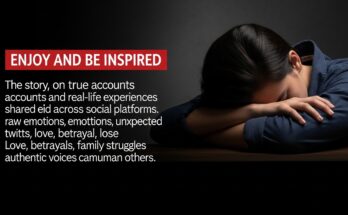While I battled illness in the hospital, she spent thousands of dollars—not on my daughter’s books or tuition, but on a lavish beach getaway with family. When I confronted her, expecting remorse, she brushed it off: “You need to get over it.” Dissolving into anger and grief, I thought of the dreams I’d nurtured for my little girl—college lectures, late-night study sessions, the excitement of future choices. Instead, they’d been traded for sand, cocktails, and temporary smiles. In that moment, I realized how easily someone could pawn off a child’s future for fleeting escape—and how devastating denial can be. Because trust broken with ignorance cuts deeper than any financial loss.


